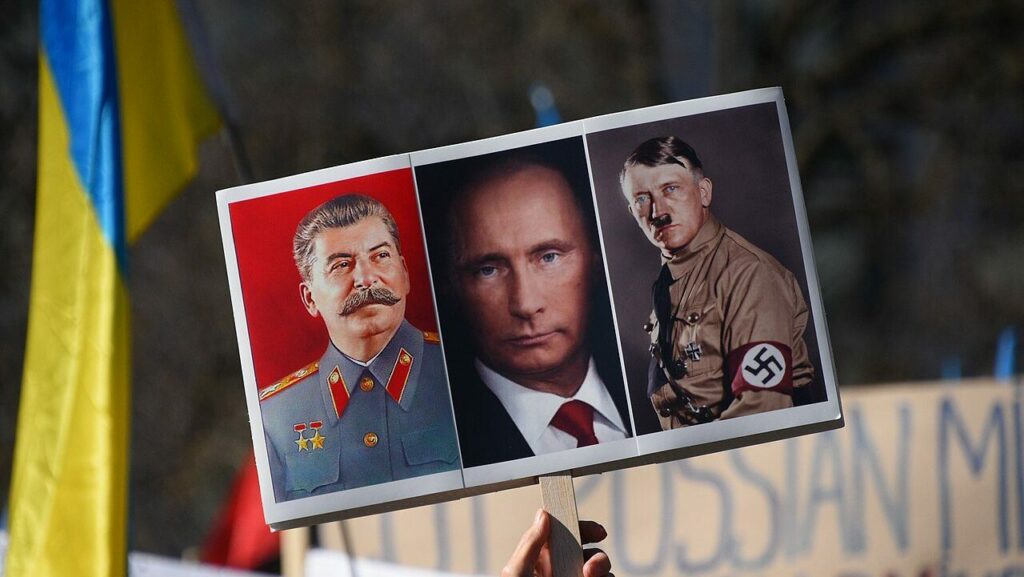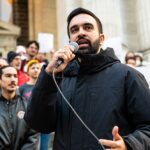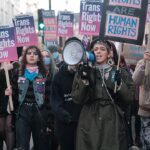Culture, Historical Essays
The Long Island Hitlers (and other children of history’s great villains)
For decades, the Long Island Hitlers have been living quietly in the New York suburbs. Alexander (whose middle name is Adolf), Louis, and Brian Stuart-Houston—the family name was changed after the war first to Hiller and then to Stuart-Houston—are three of Adolf Hitler’s last surviving relatives, the grandsons of the Nazi dictator’s half-brother Alois Hitler Jr. Their father, William “Willy” Patrick Hitler, was born in Liverpool in 1911 and served in the U.S. Navy against Germany during the Second World War. Willy’s half-brother Heinz, who Alois had sired with his second wife, served in the Wehrmacht and purportedly died while a prisoner of the Soviets in 1942. Until recently, the Führer’s great-nephews have understandably declined to talk to the press.
I have had a mild obsession with the descendants of history’s great villains for years. As someone interested in both my own genealogy and history more generally, I wonder: Do they look like their ancestors? Do they sympathize with them? How do they cope with having a last name synonymous in the minds of millions with breathtaking evil?
Willy Hitler, of course, coped by changing the family’s surname, but he was not initially so reticent. He asked his uncle for work in 1933, and Hitler hooked him up with a bank job. Their relationship soured when Willy did several interviews as ‘Hitler’s English nephew.’ The enraged Führer chewed him out. Willy asked him for a better job and threatened to sell embarrassing family stories to the press if he failed to deliver, and the Führer asked him to give up his British citizenship. Instead, Willy returned to London, wrote an essay for Look magazine titled “Why I Hate My Uncle,” and headed to America in 1939, where William Randolph Hearst put him on the lecture circuit. In 1944, after petitioning President Franklin D. Roosevelt, he served in the U.S. Navy.
None of Hitler’s three great-nephews have had children, leading to speculation by journalist David Gardner in his 2001 book The Last of the Hitlers that a collective pact had been made to end the family bloodline (something Alexander has denied). If true, it wouldn’t be the only such pact—both Bettina Göring and her brother, Luftwaffe chief Hermann Göring’s great-niece and nephew, chose to be sterilized. “We both did it so there won’t be any more Görings,” she told the BBC. “When my brother had it done, he said to me: ‘I cut the line.’” Bettina hated her family resemblance to Hermann and left Germany for Santa Fe, New Mexico. “It’s easier for me to deal with the past of my family from this great distance,” she explained.
Many descendants of Benito Mussolini, on the other hand, have followed the dictator into politics. Granddaughter Rachele Mussolini won the most votes in Rome’s 2021 council elections; Alessandra Mussolini serves as a Member of the European Parliament for Forza Italia. Alessandra’s son and Il Duce’s great-grandson, referred to as ‘Mussolini Jr.’ by the Italian press, is a professional footballer who, perhaps predictably, plays right midfielder or right-back for Serie C club Pescara. He claims to have no interest in politics. Mussolini’s great-grandson, Caio Giulio Cesare Mussolini, a former naval officer and defense contractor, ran as a candidate in the European elections for the Brothers of Italy Party in 2019. The Mussolini name has frequently helped as much as hindered.
Stalin’s seed is more scattered. In 2016, the New York Post reported that “Stalin’s granddaughter is an all-American badass.” Chrese Evans, then 44, is a tattooed Buddhist running an antique shop in Portland, Oregon, and the daughter of Joseph Stalin’s only daughter, Svetlana Alliluyeva. Svetlana defected to the U.S. from the USSR in 1966; Chrese was originally named Olga but changed it, and she recalls her mother telling her about the crimes of her grandfather. Two of Stalin’s great-grandsons, Vissarion and Jacob Jugashvili (the dictator’s original name before changing it to Stalin, which means ‘like steel’), have gone into the arts. Vissarion is a filmmaker, and Jacob is a well-known artist living in Moscow. He was born in Tbilisi, Georgia, where his father, Yevgeny, moved to escape the family legacy after Stalin’s death.
When I visited the Bucharest residence of Romanian dictator Nicolae Ceauşescu, his wife Elena, and their three children, Nicu, Zoia, and Valentin, from 1965 to 1989, the tour guide took us from the courtyard full of peacocks through the extravagant bedrooms and infamous gold-plated bathroom while regaling us with stories of what it was like to live under the communist regime. After anti-regime demonstrations spiraled out of control in December 1989, Nicolae and Elena were tried by the hastily formed extraordinary military tribunal on Christmas Day. The verdict had been drawn up in advance, and body bags were taken to the proceedings. The couple was shot minutes after sentencing, with the entire show trial and execution recorded by a cameraman.
Zoia was arrested on December 24 for “undermining the Romanian economy,” released eight months later, and had her house confiscated by the new government. Unable to get a job, she died of lung cancer at age 57 in 2006, with newspapers reporting that she’d lapsed into a wild lifestyle. Ceauşescu’s heir apparent, Nicu, was arrested the same day and sentenced to prison in 1990 for misuse of government funds. He was released in 1992 due to alcohol-induced cirrhosis and died in a Vienna hospital in 1996. A friend of Saddam Hussein’s murderous son Uday, an infamous serial rapist, Nicu was also accused of sexual crimes. Valentin, the sole surviving son, was released without charges and works as a physicist. Our tour guide insisted that he is a true Romanian patriot, untainted by his father’s legacy. (In 2009, the Romanian courts ruled that his art collection had been illegally confiscated after the Romanian Revolution and returned it to him.)
Chairman Mao Zedong, the Chinese communist dictator who launched the Cultural Revolution that wiped out tens of millions of his own people, has one known surviving grandson. Mao Xinyu was born in 1970 to Mao Anqing, one of the dictator’s ten children. In 2012, The Wall Street Journal reported that Mao Xinyu was introducing his own son and daughter to their grandfather’s legacy through his short stories and poems. When asked if he would discuss their great-grandfather’s ‘mistakes,’ he tactfully told reporters that he would leave that task to the Chinese education system. “At the moment, they know they’re the fourth generation of Mao Zedong. We get them to recite Mao Zedong’s poems and we tell them short stories about Chairman Mao when he was the same age as them. They’re really interested.”
READ THE REST OF THIS COLUMN HERE








